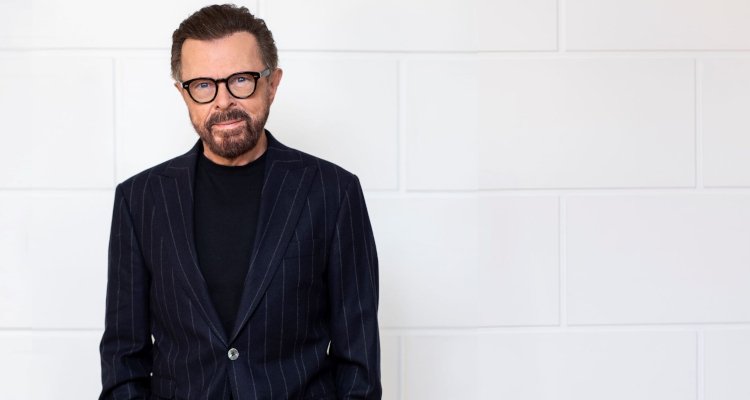
Björn Ulvaeus, who says he’s joined YouTube’s newly formed AI program to better understand the involved technology and, in turn, more effectively ‘advocate for and to help protect the rights of my fellow human creators.’ Photo Credit: Universal Music Group
As artificial intelligence content – and particularly unauthorized soundalike tracks – continues to make waves, YouTube has partnered with Universal Music Group (UMG) “to develop an AI framework.”
YouTube officially announced its music-specific AI strategy (including “three fundamental AI principles”) today, via a formal release that was emailed to DMN. Behind said formal release, the video-sharing giant’s CEO, Neal Mohan, penned a blog post on the subject, which UMG head Lucian Grainge went ahead and elaborated upon in a YouTube post of his own.
Beginning with Mohan’s remarks (and YouTube’s overarching plans for AI on the music side), the former chief product officer dedicated a few paragraphs to exploring topics such as his business’s “deep partnership with the music industry” before disclosing the aforesaid framework principles.
One of these relatively vague principles acknowledges that “AI is ushering in a new age of creative expression” – while also pointing to a corresponding need for “appropriate protections” and “opportunities for music partners who decide to participate.”
“We’re eager to further build on our focus of helping artists and creators make money on YouTube and will continue to do so in collaboration with our partners,” the principle reads in part. (Earlier this month, reports suggested that UMG, Warner Music, and Google had started coordinating on an artificial intelligence music generation tool.)
Another of the principles concerns YouTube’s intention to scale its content policies “to meet the challenges of AI,” including by bolstering Content ID investments and utilizing artificial intelligence video-monitoring tools to “protect” viewers, creators, artists, and songwriters alike.
Finally, the most noteworthy of the three principles, after reiterating AI’s prevalence and unprecedented growth potential, introduces “YouTube’s Music AI Incubator.”
With inaugural UMG members like Rodney Jerkins, Anitta, Björn Ulvaeus, Ryan Tedder, Yo Gotti, and the Frank Sinatra estate, this program “will help gather insights on generative AI experiments and research that are being developed at YouTube,” Mohan relayed.
Additionally, several members of the incubator (to which YouTube expects to add others from “across the industry” moving forward), including Session founder Björn Ulvaeus, addressed their participation in brief statements.
“While some may find my decision controversial,” said Ulvaeus, “I’ve joined this group with an open mind and purely out of curiosity about how an AI model works and what it could be capable of in a creative process. I believe that the more I understand, the better equipped I’ll be to advocate for and to help protect the rights of my fellow human creators.”
Regarding the timetable for the rollout of the highlighted features and initiatives, Mohan communicated only that “the months ahead” are poised to deliver “more about specific technologies, monetization opportunities, and policies we’re developing.”
And in his above-noted post on the subject, entitled “An artist-centric approach to AI innovation,” the vocal AI critic Grainge struck an optimistic tone when discussing the technology’s perceived ability to complement human creativity and drive revenue opportunities if carefully regulated.
“AI will never replace human creativity because it will always lack the essential spark that drives the most talented artists to do their best work, which is intention,” said Grainge, whose company earlier in 2023 partnered with relaxation app Endel to create “ethical AI” songs. “From Mozart to The Beatles to Taylor Swift, genius is never random.”

